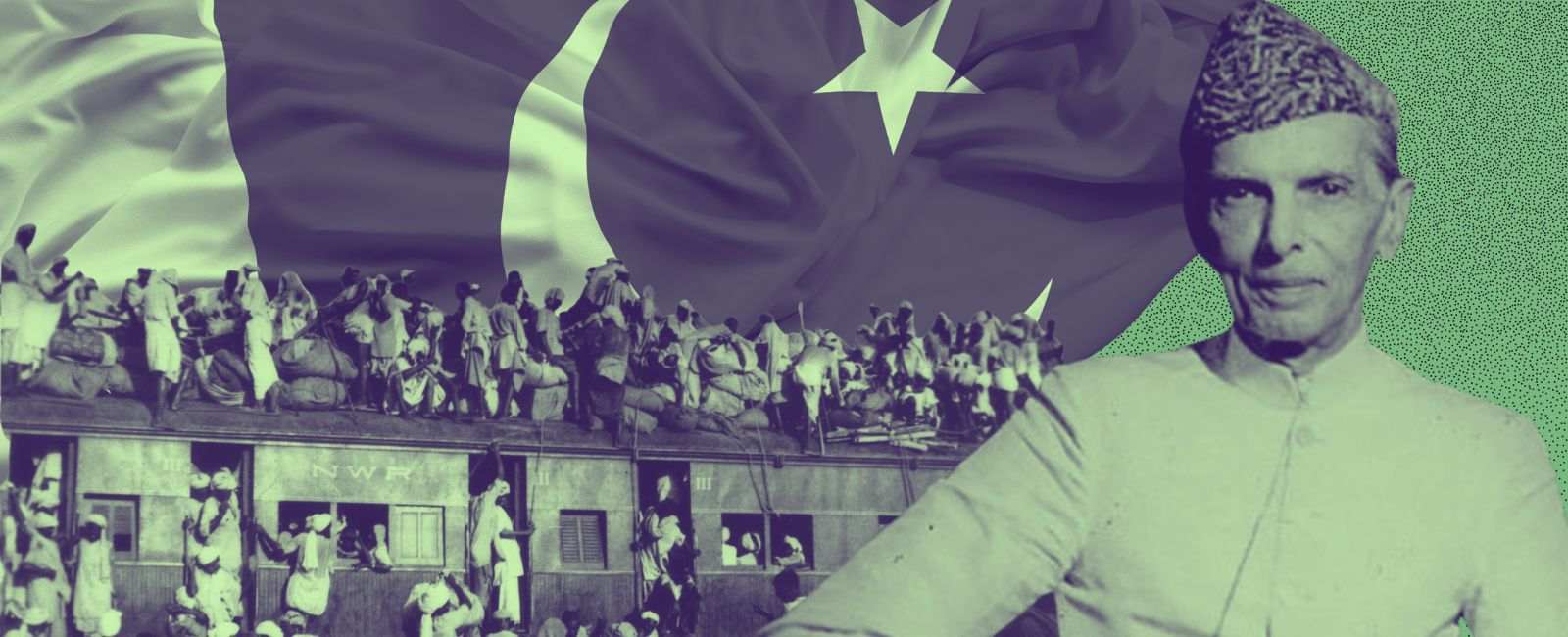Why Jinnah shifted Independence Day to August 14
Jinnah wanted a place for Pakistan in history which got independence through resistance, not through appeasing an imperial power

A long time ago, someone asked me something that stuck: if both India and Pakistan came into being on August 15, 1947, then why does Pakistan celebrate its Independence Day on the 14th?
Back then, I didn’t know the answer. So, I went looking for it. I talked to historians, read what I could find, and kept digging until things started to make sense. What I found wasn’t just an answer to that one question; it challenged a lot of what I thought I knew. Turns out, many claims made against Quaid-e-Azam Muhammad Ali Jinnah don’t hold up when you really look at the facts.
Take the popular notion, often repeated by leaders like Shashi Tharoor, that the Muslim League and Jinnah were tools in Britain’s ‘divide and rule’ game. But the truth is more complicated. In fact, both the British government and Gandhi tried hard to stop Pakistan from being created. At one point, they even offered him the Prime Ministership of a united India. He refused.
Had he accepted, there probably wouldn’t have been a partition at all.
Now, is today’s Pakistan what Jinnah envisioned? No. Far from it. But ironically, today’s India is beginning to prove him right, especially in how religious minorities are being treated there. It’s a sad twist that some of what he feared is playing out now.
Technically, yes, both countries came into being on August 15, as per the Indian Independence Act of 1947. Pakistan’s first postage stamps issued almost a year later, on July 9, 1948, even had that date printed on them. You can still see those stamps in the State Bank Museum in Karachi.
But here’s where it gets a bit nuanced. The formal ceremony in Karachi where power was handed over happened on August 14. That’s what Pakistan marked as its first actual day as a free country. Later, in 1948, Prime Minister Liaquat Ali Khan’s cabinet made it official — Independence Day would be observed on the 14th.
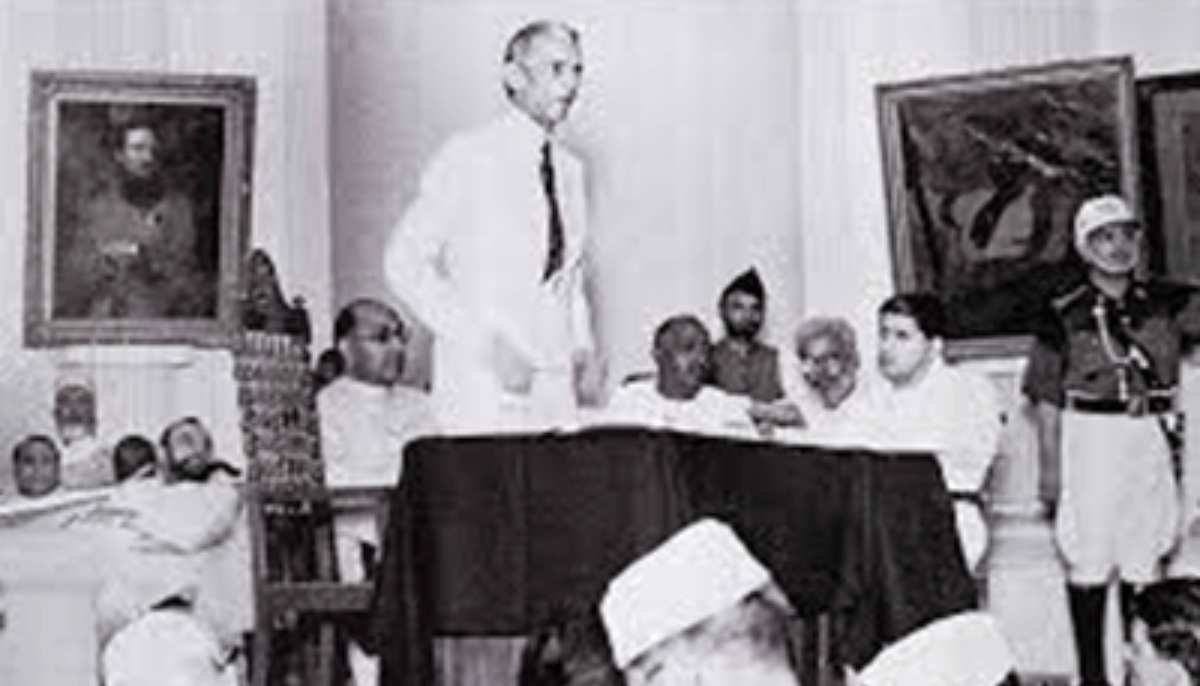
And there’s also the time difference. India and Pakistan are half an hour apart. So, when the clock struck midnight on August 15 in India, it was still 11:30pm on August 14 in Pakistan. That detail, minor as it may seem, also fed into the decision to make August 14 the official date. The proposal was shown to Qauid-e-Azam and he gave his approval.
It’s also important to remember that the British weren’t too keen on Pakistan to begin with. In early 1946, they sent a Cabinet Mission to try and keep India united during the transfer of power. But Jinnah wasn’t happy with how things unfolded. On July 6, 1946, he even wrote to British Prime Minister Clement Attlee, accusing the delegation and the viceroy of betrayal.
Soon after, the British replaced Lord Wavell with Lord Mountbatten as viceroy in 1947. Mountbatten, who had close ties to the royal family — Queen Elizabeth, Prince Philip, and now King Charles — was brought in to finish the job.
Lord Mountbatten was the last Viceroy and Governor-General of British India. He was sent to India with a task to stop the creation of Pakistan. I have seen many historical documents in the Transfer of Power archives of the British Library in London. Many books offer insights into the controversial role of Mountbatten in the partition of British India. He admitted many historical facts in a book titled Mountbatten and the Partition of India. This book contains a long interview of Mountbatten by American journalists Larry Collins and Dominique Lapierre. This book was published in 1982 in India. Mountbatten admitted in this book that he was against the partition of India. One day, Gandhi asked Mountbatten — “You must say to Jinnah sahib — ‘I will transfer power to you, I will ask you to be Prime Minister, I will ask you to form a government to run a united India’” (page 33).
The viceroy agreed and made this attractive offer to Jinnah, but he never showed any interest in becoming Prime Minister of united India (page 35).
He told Jinnah that the Pakistan scheme was unworkable, and he must accept a united India. He used the term moth-eaten for Pakistan. Jinnah was undoubtedly bitter over Mountbatten’s bias against Pakistan and his surrender to the demand of Congress for the division of the Muslim-majority provinces of Punjab and Bengal. Mountbatten accepted that demand to pressurise Jinnah, but the latter never came under any pressure.
Mountbatten confessed, “I was trying every trick I could play on him. I was trying to appeal to him in every way I possibly could.” (Page 39) … Mountbatten miserably failed to change the mind of Jinnah.
Mountbatten also said in the same book that, “If Mr. Jinnah had died of his illness about two years earlier, I think we would have kept the country unified. He was the one man who really made it impossible.” (Page 42)
This book actually blasts all the allegations that Jinnah was a British agent and that he created Pakistan to follow the British policy of divide and rule. These allegations were made against Jinnah by some so-called secular politicians and religious fanatics without any evidence. According to this book, Jinnah clearly told Mountbatten, “No, I don’t want to be part of India. I’d sooner lose everything than be under a Hindu Raj.” (Page 44)
Mountbatten says in the same book, “I will at once confess that I failed with Jinnah.” (Page 49)
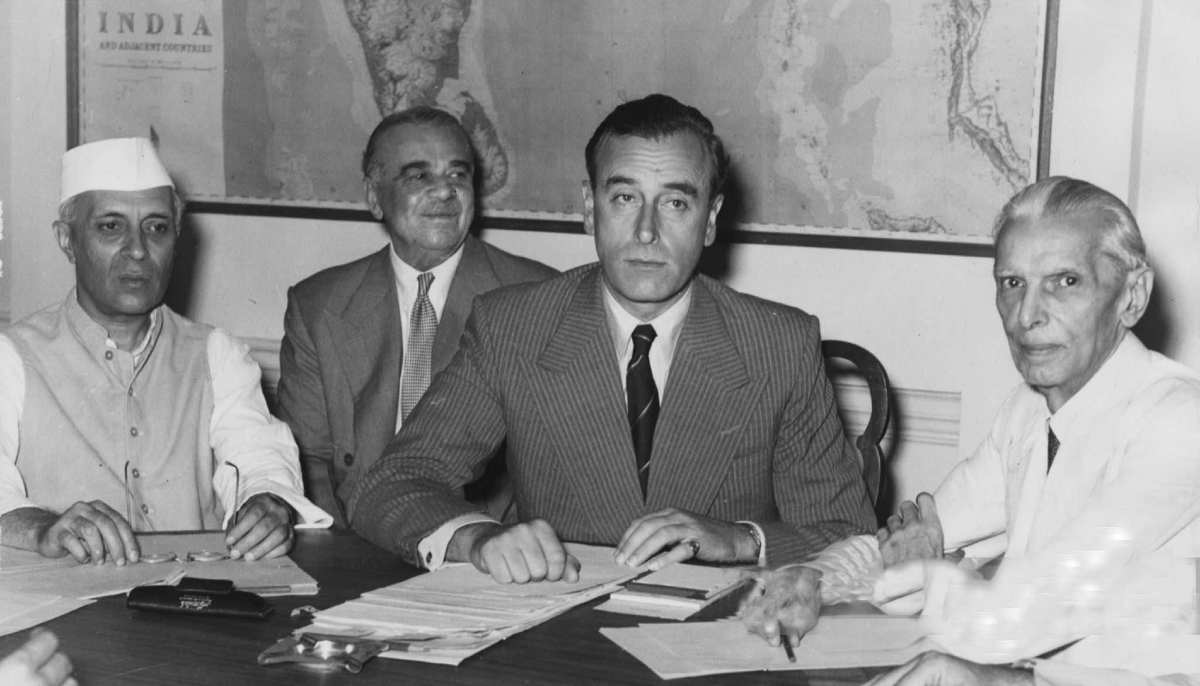
This book also gives us an idea of the close collaboration of Gandhi and Nehru with the British Raj and the resistance from Jinnah against the imperial power. It was Mountbatten who selected the date of 15th August for the independence of India and Pakistan. He confessed in the same book, “I had selected August 15 because it was the date of Japanese surrender.” (Page 74)
Don’t forget that the United States used nuclear bombs against Japan during the Second World War. The US targeted Hiroshima on August 6 and Nagasaki on August 9. After facing destruction by nuclear bombs, Japan surrendered on August 15.
Mountbatten was the Supreme Allied Commander, Southeast Asia, who received the surrender of Japanese forces in Singapore. August 15 is the national liberation day of South Korea and North Korea because this region was liberated by Allied Forces from Japanese rule on August 15.
Here, I would like to mention a book written by Jaswant Singh titled Jinnah: India-Partition-Independence. Jaswant Singh served as External Affairs, Defence and Finance Minister of India. He raised objections to accepting August 15 as the Independence Day of India. He wrote, “Why did Mountbatten choose 15 August?”
Jaswant Singh further wrote that Mountbatten issued a broadcast on 15 August 1947 to the United States of America to celebrate the second anniversary of the Allied victory over Japan. Mountbatten said, “I speak to you tonight in Delhi, we are celebrating an event no less momentous for the future of the world — India’s Independence Day.”
According to Jaswant Singh, 15 August may have had a personal association for Mountbatten but was totally irrelevant for his present responsibility. Jaswant Singh raised a question: “Did Mountbatten then turn India’s partition also into an exercise in disingenuity?”
Now look at the shameful attitude of Congress leaders. The Indian National Congress leadership begged Mountbatten to become the Governor-General of India. I will go back to page 75 of Mountbatten and the Partition of India, where the last Viceroy of India reveals that the President of the Assembly, Rajendra Prasad, requested Mountbatten: “You should be the first head of state of our freely elected India.” Then Nehru said, “And you, sir, have chosen me as your Prime Minister, and here is the cabinet, which I submit to you.” Then Gandhi came to see Mountbatten and said, “I wanted to tell you how thrilled I am that the Congress Party should have asked you to stay on as the Head of State.”
On the other side, Jinnah refused to accept Mountbatten as the joint Governor-General of both India and Pakistan. Mountbatten sent messages to Quaid-e-Azam through the Nawab of Bhopal and Liaquat Ali Khan, saying that if the Muslim League was determined to create Pakistan, then they must accept him as the joint Governor-General of India and Pakistan. Jinnah refused because he doubted Mountbatten’s intentions and considered him an enemy of Pakistan. According to a Viceroy’s personal report of July 4, 1947, available in the Transfer of Power documents, Mountbatten confessed that after his refusal to accept him as Governor-General, he told him: “It may well cost the whole of your assets and the future of Pakistan. I then got up and left the room."
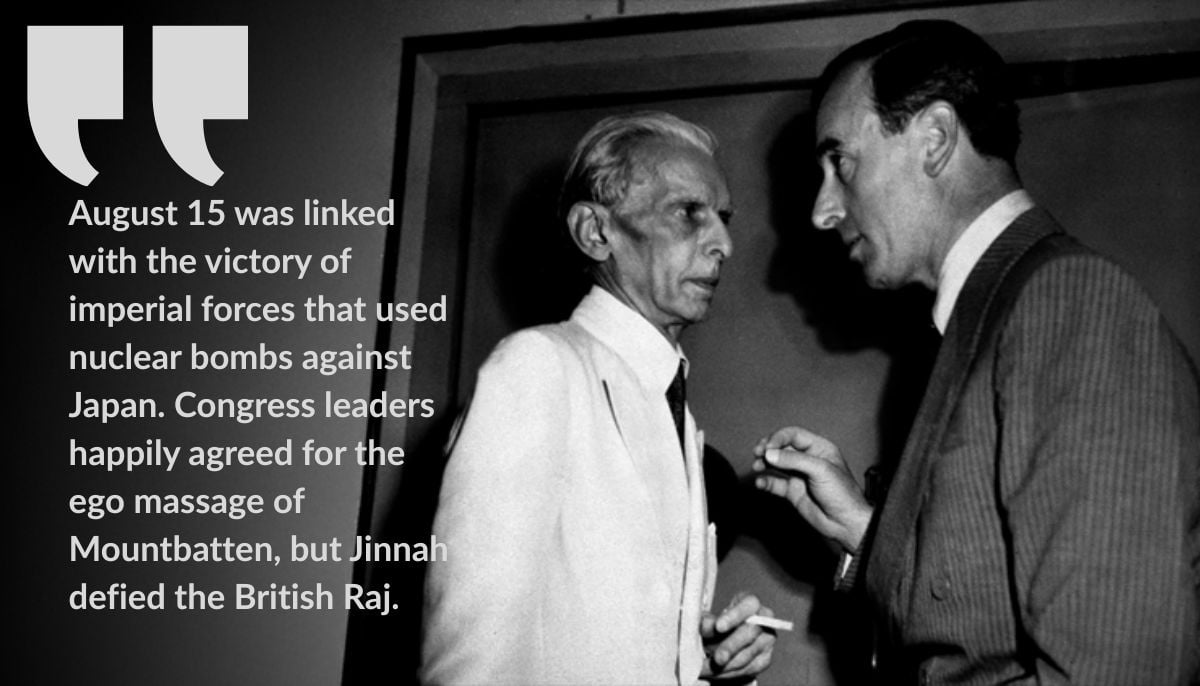
It was the evening of July 2, 1947, when Mountbatten faced a bombshell: Jinnah informed him that he wanted to be the first Governor-General of Pakistan. It was difficult for Jinnah to accept one man riding two horses at the same time. Now compare the Congress leaders with Jinnah. Congress leaders were behaving like sycophants and collaborators of the British Raj, while Jinnah showed the character of an anti-imperialist freedom fighter.
That was the reason the Communist Party of India’s General Secretary, PC Joshi, declared the All India Muslim League as an anti-imperialist organisation, and communists started supporting Pakistan in 1942.
Now you can understand why Jinnah approved the proposal to change the Independence Day of Pakistan from August 15 to August 14. August 15 was linked with the victory of imperial forces that used nuclear bombs against Japan. Congress leaders happily agreed for the ego massage of Mountbatten, but Jinnah defied the British Raj.
Indians should think about changing the date of their Independence because Mountbatten imposed August 15 upon them — which was the victory day of imperialist forces against Japan. The same imperialist forces killed more than 2,000 peaceful protesters in 1919 at Jallianwala Bagh, Amritsar. These imperialist forces killed hundreds of Muslims in Qissa Khwani Bazaar, Peshawar, in 1930. How can Indians celebrate the victory day of their killers as their Independence Day?
The Indian ruling elite may not like to change their Independence Day because this elite was the beneficiary of imperialism. Historical documents prove that not only Mountbatten, but Sir Cyril Radcliffe also favoured the Indian elite in the boundary demarcation of the two new countries.
Radcliffe actually conspired with Mountbatten, who was already collaborating with Congress leaders to create problems for Pakistan. Viceroy Mountbatten, violating his oath of impartiality, put undue pressure on Radcliffe to alter his Punjab Boundary Award so as to give India the Muslim-majority areas of Zira, Ferozepur, and Gurdaspur to please Nehru, who had promised to make Mountbatten India’s first Governor-General. Gurdaspur provided India with easy access to Kashmir.
Andrew Roberts, a British historian, has exposed the dishonesty and greed of Mountbatten in his book Eminent Churchillians. Conspiracies of Mountbatten caused the division of Punjab and Bengal. This division resulted in one of the largest migrations in human history, with approximately 12 million people displaced, who faced widespread violence and communal riots from Lahore to Calcutta and from Jammu to Quetta.
Due to all these conspiracies, Jinnah wanted to establish a separate identity of Pakistan. He wanted a place for Pakistan in history which got independence through resistance, not through appeasing an imperial power.
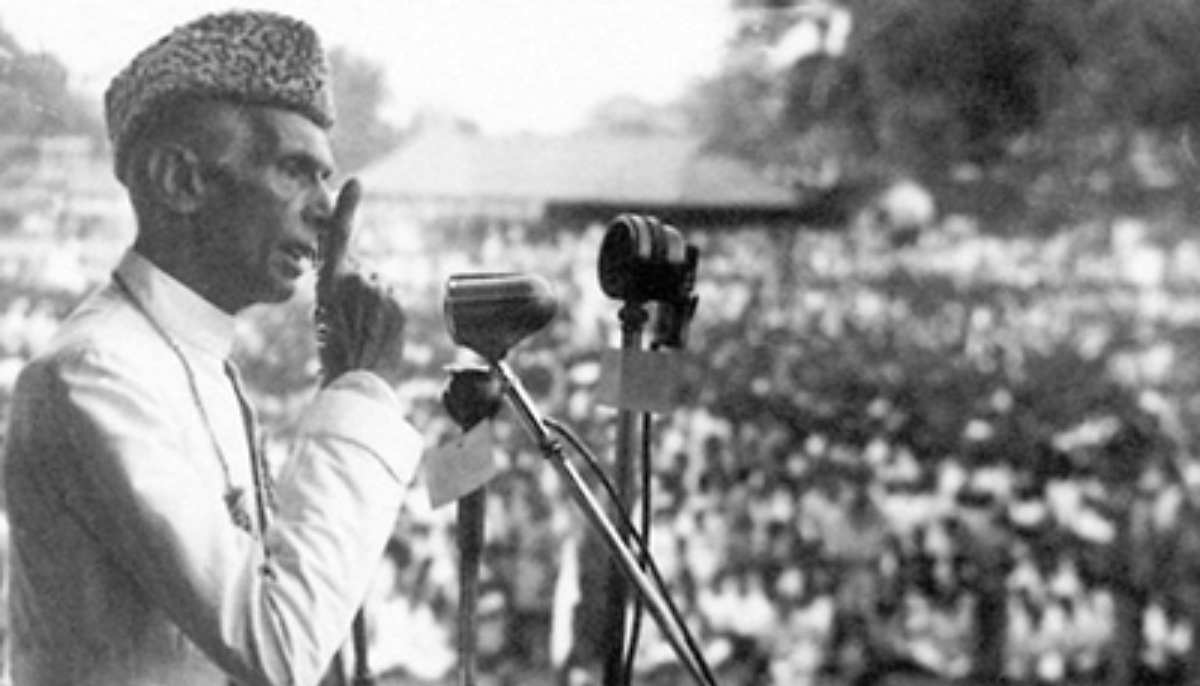
Jinnah was a real freedom fighter who always supported freedom fighters irrespective of their religion. He supported a Hindu nationalist, Bal Gangadhar Tilak, when he faced sedition charges in 1909 and 1916. Indian historian AG Noorani preserved the story of these two in his book Jinnah and Tilak. Jinnah also supported famous freedom fighter Bhagat Singh when he announced a hunger strike in prison. The founder of Pakistan delivered a hard-hitting speech in the assembly and demanded to treat Bhagat Singh and his comrades as political prisoners.
Another book written by AG Noorani, about the Trial of Bhagat Singh, has a whole chapter on how Jinnah defended Bhagat Singh openly in the Legislative Assembly. Noorani disclosed in the same book that not only Jinnah but national poet of Pakistan, Allama Iqbal, also supported Bhagat Singh from the platform of Lahore High Court Bar Association in 1929.
Jinnah also supported Mufti Amin ul-Hussaini of Palestine, who was declared a most-wanted criminal by the imperial forces in 1945. He openly supported many freedom fighters that were declared terrorists and traitors by the British Raj. The leader was in contact with Muslim Brotherhood leader Hassan al-Banna, who refused to accept the state of Israel. They wrote letters to each other, which are available in the Jinnah Papers. Hassan al-Banna was assassinated, and later, the Muslim Brotherhood was banned in Egypt.
Quaid-e-Azam also opposed the creation of Israel by imperial powers in 1948 and wrote a letter to US President Truman. He rejected the partition of Palestine and denounced UN General Assembly resolution 181 which proposed a two-state solution of the Palestine conflict.
A collection of his letters, speeches, and statements compiled in the book Jinnah and World Affairs, published by the Pakistan Study Centre at the University of Karachi, portrays him as a statesman resisting colonialism far beyond South Asia — in Palestine, South Africa, Indonesia, and Vietnam.
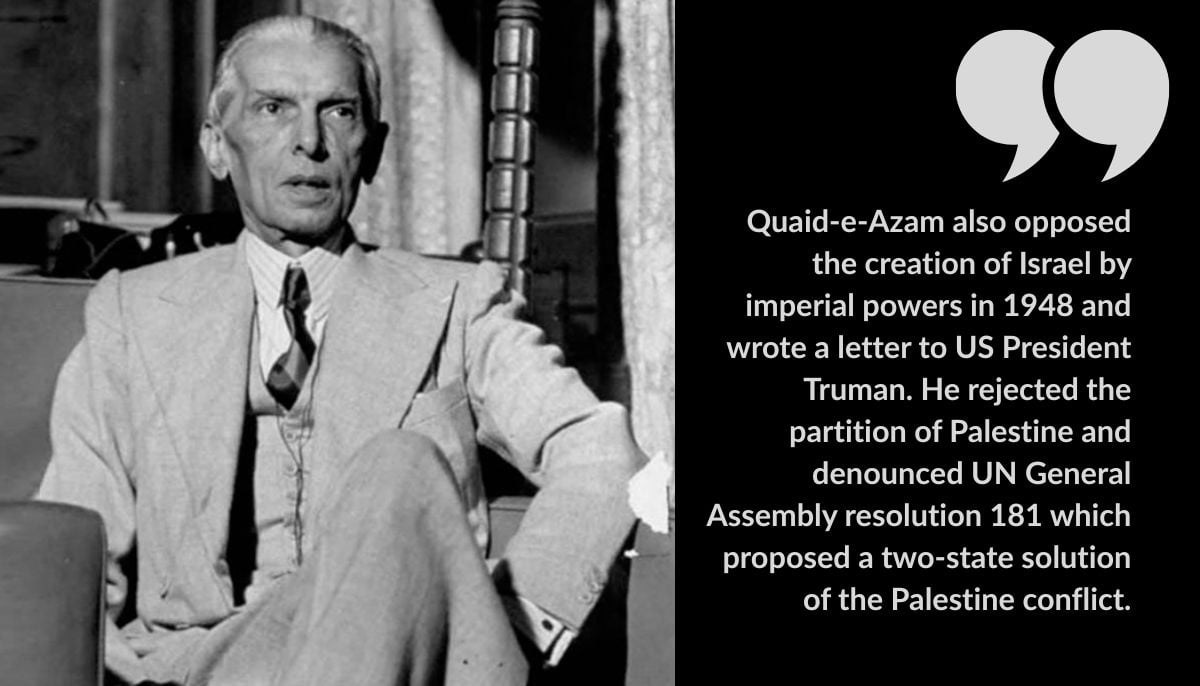
History also records an interesting fact: the first Kashmir Day in Lahore was observed on August 14, 1931. Allama Iqbal, addressing a large public gathering at Mochi Gate, raised a powerful slogan calling for Kashmir’s freedom. Years later, this same date would become Pakistan’s Independence Day.
Jinnah tried relentlessly to break Pakistan away from the colonial legacy of the British Raj. But after his death, the country fell into the hands of those more willing to take dictation from the very imperial powers he had resisted.
He strongly opposed arbitrary arrests and denounced the draconian Rowlatt Act in the Legislative Assembly, declaring: “No man’s liberty should be taken away for a single minute without a proper judicial inquiry.”
Jinnah also championed press freedom. On September 19, 1918, he criticised repressive press laws in the Assembly, urging protection for journalists who criticised the government independently and honestly, calling it "an education for any government". And on March 13, 1947, while addressing journalists in Bombay, he said: "I expect you to be completely fearless. If I go wrong, or for that matter the League goes wrong in any direction of its policy or programme, I want you to criticise it honestly as its friends.”
It is unfortunate, then, that while Pakistan marks its Independence Day on August 14, its media continues to operate under black laws like the PECA Act 2025. The legal system remains shackled by colonial-era legislation. Just look at the laws still in force: the Pakistan Penal Code (1860), the Code of Criminal Procedure (1898), the Code of Civil Procedure (1908) — the list goes on. Similar laws remain in place across India and Bangladesh. These relics of colonial rule remind us that while British rule ended in 1947, many of its oppressive structures remain intact.
We must ask ourselves difficult questions: Is the judiciary truly independent in Pakistan? Is the media free? Is parliament sovereign?
Until our legal and institutional systems break free from the chains of colonialism, our celebration of independence will remain incomplete.
Hamid Mir is a senior journalist, anchor, and columnist, associated with Geo News. He posts on X @HamidMirPAK
Header and thumbnail illustration by Geo.tv



